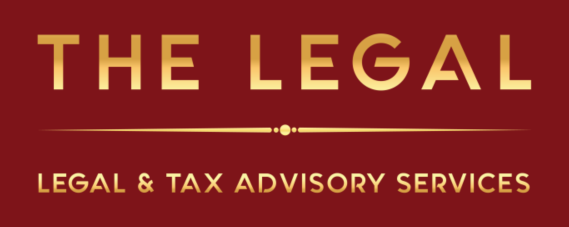

Since 2010, the Global Law Experts annual awards have been celebrating excellence, innovation and performance across the legal communities from around the world.
posted 11 months ago
Thailand represents a dynamic and promising economic environment for both local and international investors. Understanding the process will benefit entrepreneurs and corporations looking to establish a presence in Thailand.
Investors in Thailand can choose from several types of business entities, including sole proprietorship, partnership, and limited company. Among these, the limited company stands out as the most popular form of incorporation due to its favorable features like limited liability to shareholders and flexibility in management and operations.
In terms of capital requirement, the law mandates for Thai companies a minimum registered capital based on the type of business and its specific operational needs.
The legally permissible minimum registered capital for a limited company incorporated under Thai law is 10 baht. However, in practice, no businesses opt for such a low capital amount as it does not reflect the true nature of business operations and may lead to business partners and clients perceiving the company as financially unstable.
However, foreign businesses in Thailand require a minimum registered capital of 2 million THB for non-restricted operations and 3 million THB for those under restriction by the Foreign Business Act. Thai-owned companies are not subject to these requirements.
To ensure your company operates businesses smoothly and in compliance with national law, there are several important steps to take once you have established a company. Those include:
In companies where Thai nationals hold more than 50% of the shares, the enterprise is classified as a Thai-majority-owned limited company. Generally, these companies face fewer operational restrictions in Thailand.
A business is considered foreign-owned if at least 50% of its ownership is foreign-owned. Although foreign investors are generally allowed to fully own such companies, the Foreign Business Act specifies certain sectors, such as those involving natural resources or national security and some services, which are exclusively reserved for Thai nationals.
In these sectors, foreign investors are restricted to owning a maximum of less than 50% of the company’s shares. Exceptions to this restriction include situations where a Foreign Business License/Foreign Business Certificate is issued, or when the company receives a promotion from the BOI or benefits under international agreements like the Thai-U.S. Amity Treaty. These exceptions enable foreign investors to own a majority or even 100% of the company’s shares in otherwise restricted business sectors.
In Thailand, the business landscape offers distinct operational freedoms and restrictions for Thai nationals and foreign investors.
This license/certificate permits them to engage in business activities that are otherwise highly restricted in Thailand, providing them with significantly more operational flexibility. Still, certain businesses require specific licenses.
The Board of Investment of Thailand (BOI) provides an attractive range of incentives, for entrepreneurs who engage in a particular business, designed to encourage foreign investment, especially in high-tech industries, research and development, and environmentally friendly projects. These compelling benefits include tax incentives (e.g. reduction or exemption of corporate income tax (up to 8 years) or import duty on machinery and raw materials), and non-tax incentives (e.g. expedited work permit and visa processes or land ownership rights).
Besides the BOI, the business operator or investor who engages in particular industries (e.g. advanced robotics, aviation, digital technology, etc.) and operates within the promotional economic zone within the Eastern Economic Corridor (EEC) area which all are situated in either Chachoengsao, Chonburi, or Rayong provinces, can apply for incentives; i.e. tax incentives and non-tax incentives, which include extended tax holidays, grants and subsidies for R&D, expedited work permit and visa processes, from the EEC.
It is essential to note that if you have already received incentives from the BOI, you can only apply for incentives that are not covered by the BOI Act from the EEC. However, if you have already received incentives from the EEC, it will be prohibited for you to apply for BOI incentives going forward.
In Thailand, there are key tax considerations for a limited company. Those include:
Unlike Thai citizens or entities that are entitled to own land, foreigners are not eligible to do the same. However, there are practical solutions for foreign entities including:
Foreigners are welcome to participate in the Stock Exchange of Thailand (SET), with opportunities to invest across a broad range of sectors. Key points to consider include:
Overall, establishing a company requires navigating multiple steps, gathering the necessary documentation, and addressing complex details. Investors must ensure they comply with all requirements to prevent any potential issues. Thailand presents a compelling investment landscape for foreign investors. With its strategic location, dynamic economy, and supportive government policies, the country offers abundant opportunities for businesses to flourish. Foreign investors can successfully establish a presence in Thailand and tap into the nation’s economic growth potential.
Stay informed with the latest legal developments at Global Law Experts
Author


No results available
posted 20 hours ago
posted 24 hours ago
posted 2 days ago
posted 2 days ago
posted 2 days ago
posted 3 days ago
posted 3 days ago
posted 6 days ago
No results available
Find the right Legal Expert for your business
Global Law Experts is dedicated to providing exceptional legal services to clients around the world. With a vast network of highly skilled and experienced lawyers, we are committed to delivering innovative and tailored solutions to meet the diverse needs of our clients in various jurisdictions.

Send welcome message